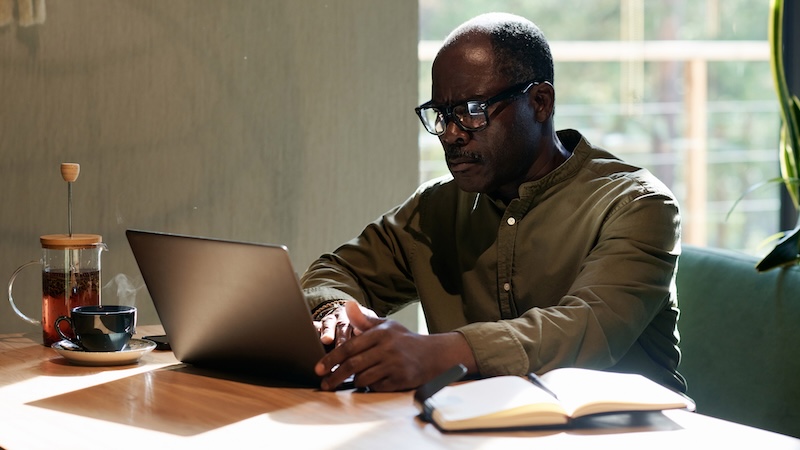Opening Our Minds to Joy
"Sunshine on a cloudy day..."

In times like we’ve faced recently – the coronavirus pandemic and its ongoing effects – it can be difficult to find delight or joy. We have all faced a new normal, and no one knows how this will shape our future.
For many people, happiness was challenging before the pandemic, and now joy seems to be even more elusive. “Human beings are much more in tune with negative information than with positive information. We tend to catastrophize more than we need to. We need to be aware that we can look for the good in things,” says Scott Allison, professor of psychology at University of Richmond.
This type of challenge is part of the circle of life, he adds. “Suffering tends to humble us, and when we are humbled it opens up our heart space. We have more opportunity to live and learn.”
With suffering comes compassion, and being compassionate helps us to see “all humanity as one,” he says. “We are all in this together.”
Even in times of anxiety and fear, you can find delight, joy, and happiness – within yourself.
UNPLUG – AND GET OUTSIDE
One of the biggest steps to finding joy is to unplug from technology.
“The computer was invented to connect us, and it has the opposite effect. It has divided us even more,” Allison says. “If we want to improve our well-being, we need to get out in nature and get away from phones and computers. When we are in nature, we are in bliss. We are supposed to be outside and moving our bodies. That is how we feel good.”
Limiting the amount of news you watch can also be helpful. You can’t control events in the news, and when you focus on the parts of life you can’t control, you may get “angry, irritable and depressed,” Allison says.
It’s good to let go of the need to control, especially when you truly don’t have control of a situation.
“Spiritual practice can bring us relief. We need to adopt a ‘change-the-things-we-can-control attitude’ for self-care,” Allison says. “There are always choices.”
One of the worst things you can do is try to look ahead to the future. It’s best to stay grounded in the present. “No one knows what will happen in a year or two years from now,” Allison says. “The truth is that throughout history we have encountered crises, and we get through them. What do we do for today, for the present moment, is all that counts.”
Reaching out and connecting with people and having faith and optimism that the human race is resilient are good habits to adopt. “This isn’t the end of the world in the long term,” Allison says. “Things will get better sooner than we think. Being patient and optimistic is challenging, but we can do it. It’s like a habit; it takes practice. People who are optimistic are more resilient.”
You can boost your spirits by continuously practicing gratitude, acknowledging what and whom you are grateful for. “Do a gratitude list every day,” Allison says.
MOLDING YOUR ATTITUDE
People have different temperaments; some are optimists while others are pessimists. A person’s temperament is evident from the first six weeks of life, says Everett Worthington, Ph.D., Commonwealth Professor Emeritus in the Virginia Commonwealth University department of psychology. “Some people are more receptive to positive moods and emotions.”
You can, however, modify your temperament. You can start by finding a hero or heroes with a positive mindset. It could be a historical figure or someone in the community or someone you know. “Finding a hero is important,” Worthington says.
Next, you can change the situations in which you put yourself. “If you are interacting with someone who is a downer, for instance, is there a way not to interact with the person as much, or is there a way to talk about things and try to be more positive?” Worthington says.
You can also change your environment. For example, if you have a boss who is negative, you may want to either change jobs (which may be difficult, especially currently) or avoid your boss when you can.
It’s good practice to think in terms of coping strategies. Take a rational look at how you can develop ways to cope with negative thoughts and then try to focus on thinking positively. “That works better for some people,” Worthington says.
Try to find things to do that excite or reward you, such as jogging, talking to a friend, enrolling in an adult education class or watching a TED Talk. “Do things that stimulate you intellectually,” Worthington says.
“[People] are really, really adaptable. This quarantine has been hard to adapt to,” Worthington says. “But, we will get through it.”
We can find delight if we do it one day at a time, Allison says. “It’s no good to think about the future or regret the past. Just live in today.”
Award-winning writer Joan Tupponce writes about a variety of subjects for local and national publications.


